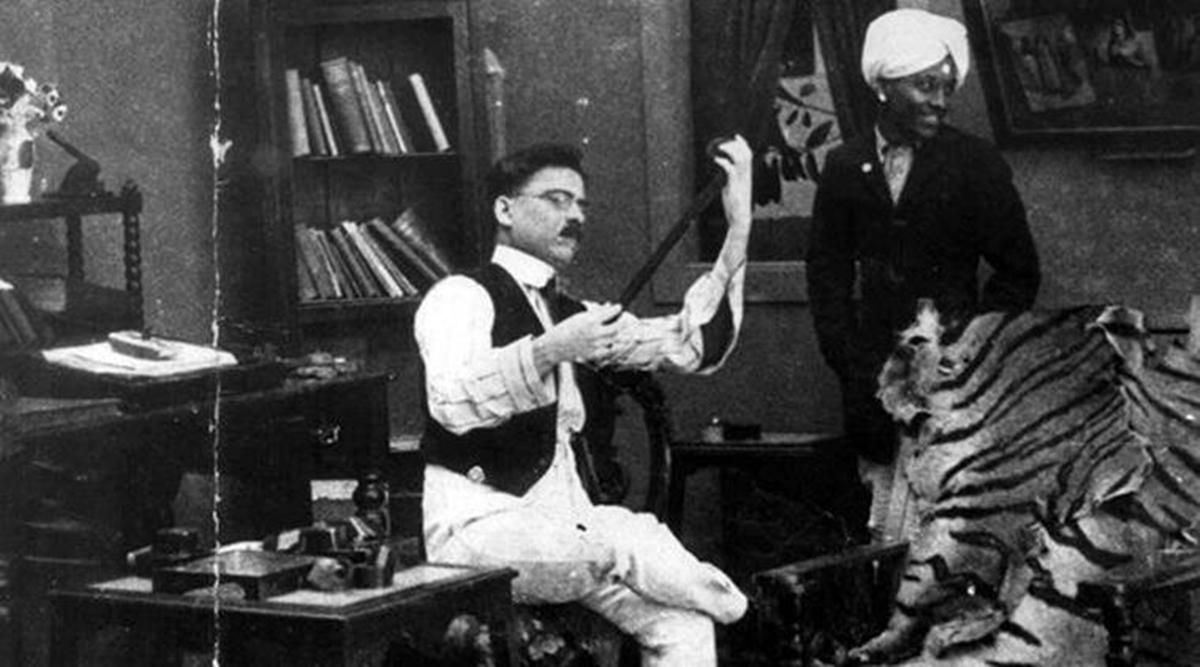/bollyy/media/media_files/2025/02/17/ge4KjUKe6bB0VvoSxcj9.jpg)
Dadasaheb Phalke: The father of Indian cinema, Dhundiraj Govind Phalke or Dadasaheb Phalke passed away on 16 February 1944 but set benchmarks that filmmakers till date are trying hard to match up to. On his death anniversary, veteran producer Anand Pandit discusses his monumental legacy and says, "For makers like us, Dadasaheb Phalke is a beacon of creative inspiration because he created cinematic landmarks with minimum resources and scarce technical support. He taught us that powerful storytelling transcends time. He and his wife Saraswatibai were also instrumental in giving a break to Indian cinema's first female actor, Durgbai Kamat."
Dadasaheb Phalke & Saraswatibai: Breaking Barriers in Cinema
/bollyy/media/post_attachments/img/article-2022821414083950919000-931692.jpg)
He also praises Saraswatibai who was an editor, helped with lighting, production as well as the development of Dadasaheb's films. He adds, "Together these two smashed gender barriers and created many classics that we still can learn a lot from. Dadasaheb drew from mythology, told ancient tales like 'Mohini Bhasmasur', 'Satyavan Savitri', 'Lanka Dahan', 'Shri Krishna Janma', and 'Kaliya Mardan' in a relatable way. He used light as well as innovative camera work and grand set design to create awe-inspiring cinema."
Dadasaheb Phalke's Legacy Inspires Young Filmmakers Today

Pandit believes Dadasaheb's example can inspire today's young filmmakers to push past any odds and tell their stories with self-belief and confidence. As he says, "Making India’s first full-length feature film, (Raja Harishchandra) in 1913 was inconceivable and yet he and Saraswatibai did it. I personally draw a lot of strength from Dadasaheb's story and his pioneering spirit which made him nurture a dream beyond his small printing press. He studied cinema in London and went on to make over 95 movies and 27 short films in just 19 years. Today with advanced technological support and diverse resources, all we need is persistence and passion to achieve many more milestones."
/mayapuri/media/media_files/2025/02/17/JS0AtHSDdMglBPDAdcBh.jpeg)
/mayapuri/media/media_files/2025/02/17/9wMwmwxXvfLgR494XzUO.jpeg)
/mayapuri/media/media_files/2025/02/17/jM6rkJMGrwjyPt7Hp2QY.jpg)
/mayapuri/media/media_files/2025/02/17/LQweRxmZLXyUM5HYFpnV.jpg)
/mayapuri/media/media_files/2025/02/17/fVRcpdBLSLE7T09QDQbD.jpeg)
/mayapuri/media/media_files/2025/02/17/AfsOImb2szLJJjMra5f6.jpg)
Read also:
- Richa Chadha's Aakhri Somvar: Richa Announces Her Love Story ‘Aakhri Somvar’ on Valentine’s Day
- Ranveer Allahbadia’s Controversy: Manas Shah Slams Ranveer’s trolling: “What Benchmark Is This?
- Jena Pandya & Ashley Day Lead the Cast in Aditya Chopra’s ‘Come Fall in Love – The DDLJ Musical’
- Yeh Rishta Kya Kehlata Hai: Armaan Meets His Real Mother Amid Family Drama
 Follow Us
Follow Us